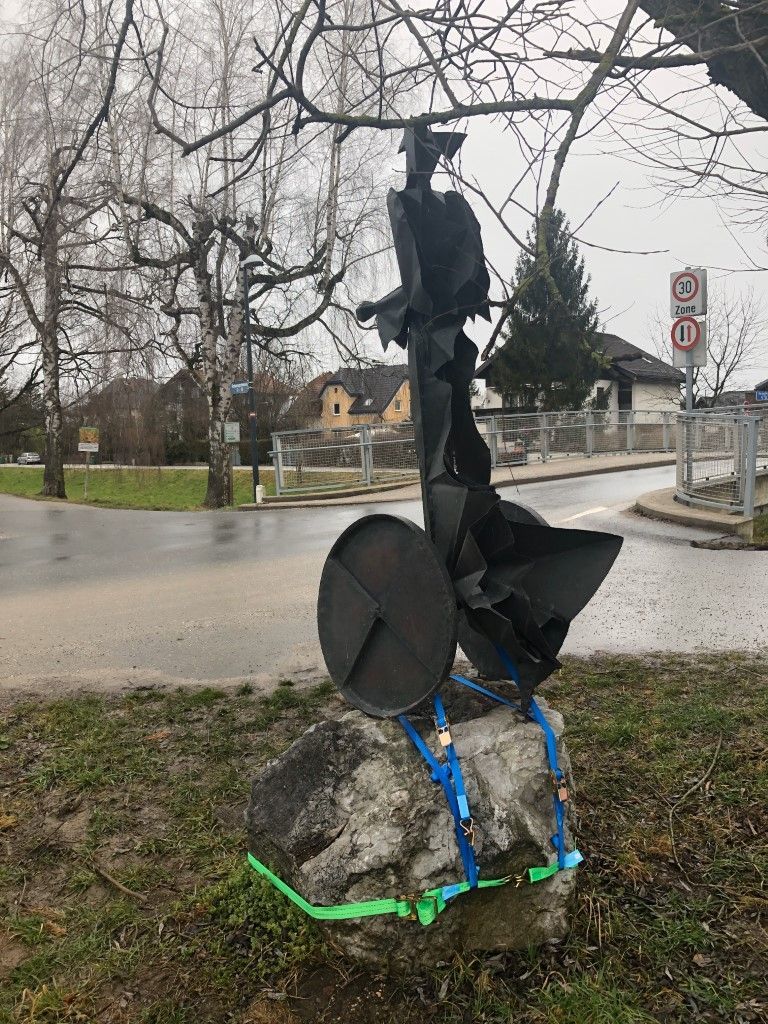A great documentary about the genocide of the Roma during the Holocaust.
- Der Völkermord an Roma und Sinti. ORF. 19.01.2025. https://on.orf.at/video/14259840/15801206/roma-und-sinti-holocaust-opfer-in-maehren-und-boehmen
A great documentary about the genocide of the Roma during the Holocaust.
in Skopje, Muharem is deeply attached to Bosnia and Herzegovina, and especially Sarajevo, which he often calls his “soulmate”.
His name is well-known in the former Yugoslavia, where he gained the status of one of the most famous singers, whose music, inspired by Roma and oriental styles, left an indelible mark on the art scene. He released his first album at the age of only 12. He is also an author and he published a translation of the Bible in Romanes.
The story of Mirjam Karoly’s and her family from the Burgenland.
https://www.facebook.com/photo?fbid=978513314306053&set=a.622864363204285
Since 2012, the Roma Adult Education Center Burgenland has been publishing the “RomaCajtung” twice a year. The main person responsible for the existence of the newspaper is the ORF journalist Erich Schneller, who died in 2021. He always set himself the goal of raising public awareness of the Roma and was editor-in-chief of the “RomaCajtung” until his death. “Erich Schneller’s commitment was tireless, we still miss him very much today,” says Horst Horvath.
Celebration of the 8th of November in Austrian Television in Burgenland Romanes and with Roma recipes.
An article about Gilda Horvath, journalist, musician, and Romani activist.
Some travellers stopping over in Austria are making headlines. The issue is that there are not camping sites open for them, and they thus have to find other places to stay. Some of the right-wing politicians are instrumentalizing Roma for political gains.
A portrait and interview of the Burgenland Romni Danijela Cicvaric, the director of the Vienna Association Romano Centro. Romano Centro has been working since 1991 for helping Roma, combatting discrimination, and promoting integration.
A reportage on the vanished Roma settlements of the Austrian Burgenland.
Susanne Raab (ÖVP), the Austrian Minister responsible for ethnic groups, invited people to a ceremony in the Federal Chancellery on Monday evening to mark the 30th anniversary of the recognition of the Roma as an ethnic group. It is clear to her that the culture and history of the Roma is an integral and integral part of Austria’s history, she said.
30 years ago, Austria recognised Roma as a national minority. In this context, Music and Minorities Research Center in Vienna featured the 2023 MMRC Lecture “amenca ketane. Histories of Trauma, Music and Romani Empowerment”.
Also, an evening on December 16th.
The usual story that Travellers leave a mess in their camping sites. Here, near Linz.
Seasonal news, indeed. A few articles in the Austrian Press about Roma camping near Linz. And these are not really flattering.
Katharina Janoska, an Austrian Romni, made a movie about the struggle of the Roma for recognition in Austria. The production from the ORF regional studio in Burgenland can be seen on ORF 2 on Sunday, August 27 at 6:25 p.m.
The usual story. No space for travellers, hence illegal camping, hence complaints.
The monument commemorating the Roma victims of the Holocaust on the site of the camp of Maxglan will be reopened this coming Wednesday. It was heavily damaged in February.

August 2nd is celebrated at the commemoration of the genocide of the Roma during the Holocaust since 2015. But Roma have long been second-class victims. The interest of the public in this commemoration and this part of the suppressed history is not least thanks to people like Čeija Stojka, who broke the silence. A major show is now being dedicated to Stojka at the Austrian Cultural Forum in New York.
A commemoration of the genocide of the Roma in Oberwart on August 2nd. Obewart, Austria, is known for the 1995 bomb attack by right wind extremists which killed 4 Roma.
On the occasion of the Holocaust Remembrance Day for Sinti and Roma on August 2nd, the Diocese of Eisenstadt invites to a commemoration ceremony in Oberwart. Of the approximately 12,000 Austrian Roma and Sinti, only around 1,500 survived the Nazi terror. Of the approx. 8,000 Burgenland Roma, only 900 people, i.e. almost 11 percent, survived the Nazi terror system.
Austria’s National Council President Wolfgang Sobotka (ÖVP) is looking for a solution to permanently preserve the graves of Sinti and Roma who survived the Holocaust. The German model could serve as a model, he said in the APA double interview with the chairman of the Central Council of German Sinti and Roma, Romani Rose. The federal and state governments split the costs there. Sobotka now wants to take a closer look at this model.